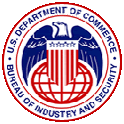 |
|
| Chemical Weapons Convention Bulletin | |
| Department of Commerce Bureau of Industry and Security | |
The Organization for the Prohibition of Chemical Weapons
A Snapshot
The Organization for the Prohibition of Chemical Weapons (OPCW) is the international body created to implement the Chemical Weapons Convention (CWC). The OPCW has an affiliated relationship with the United Nations and is located in The Hague, Netherlands. Qualified citizens of the more than 160 States Parties may serve on its staff.
Basic Organization
Article VIII of the CWC establishes the OPCW and its major components. The Conference of States Parties (CSP) is the OPCW's principal organ, responsible for overseeing implementation and reviewing compliance issues. All States Parties are members of the CSP, which meets annually.
The Executive Council (EC) is the OPCW's executive body. It promotes the effective implementation of and compliance with the Convention. The EC meets approximately six times per year to supervise the activities of the Technical Secretariat (TS) and facilitate consultations and cooperation among States Parties. The EC's 41 members are selected by a formula that recognizes the importance of geographic diversity and representation by the most significant national chemical industries, thereby virtually assuring the permanent membership of the United States.
The TS is responsible for day-to-day operations and verification activities. It comprises the OPCW permanent staff and is led by a Director-General elected by the CSP. The staff itself consists of technical, managerial, and administrative personnel.
The chart below depicts OPCW elements relevant to industry.

Verification Division
The Verification Division receives and maintains data declarations and inspection reports, manages inspection planning, and analyzes and protects information related to CWC compliance and implementation.
- Declarations Branch: processes and validates declarations.
- Confidentiality Branch: monitors the handling of and controls access to confidential verification information.
- Industry Verification Branch: assesses declarations and plans inspections for declared facilities/plant sites.
- Policy and Review Branch: monitors and assesses verification activities, prepares proposals to enhance verification efficiency, and resolves inspection issues.
Inspectorate Division
The Inspectorate Division manages the inspectors, as well as the operational and logistical aspects of inspections.
- Inspectorate Management Branch: supplies the 200+ inspectors who conduct on-site verification activities.
- Operations and Planning Center Branch: staffs a 24-hour operations center for inspection notification and support to deployed inspection teams, and conducts short-range planning and inspection reporting.
- Inspection Review Branch: reviews logistical and operational aspects of inspections, and prepares procedural manuals and policy documents.
The Inspectors
The inspectors involved with industry verification are chemical production technologists, process specialists, analytical chemists and logisticians. They have 3-year, renewable contracts and possess the following qualifications:
- Bachelor of Science in chemical engineering or chemistry and 6 years practical in-plant experience.
- Fluency in one of the six official United Nations languages, plus working knowledge of English.
Inspectors, as well as other TS employees, must sign and comply with an OPCW Secrecy Agreement, which prohibits them from divulging any information obtained while employed at the OPCW. It is binding for the duration of their employment and 5 years thereafter. The Agreement supports the Confidentiality Annex of the CWC, which contains protections for confidential business information.
To learn more about the CWC and industry obligations under the CWC regulations, visit our website at www.cwc.gov , or contact the Bureau of Industry and Security's Treaty Compliance Division at (202) 482-1001 or fax (202) 482-1731 .
Education, Assistance & Support
Publication CWC-003
Updated May 2004